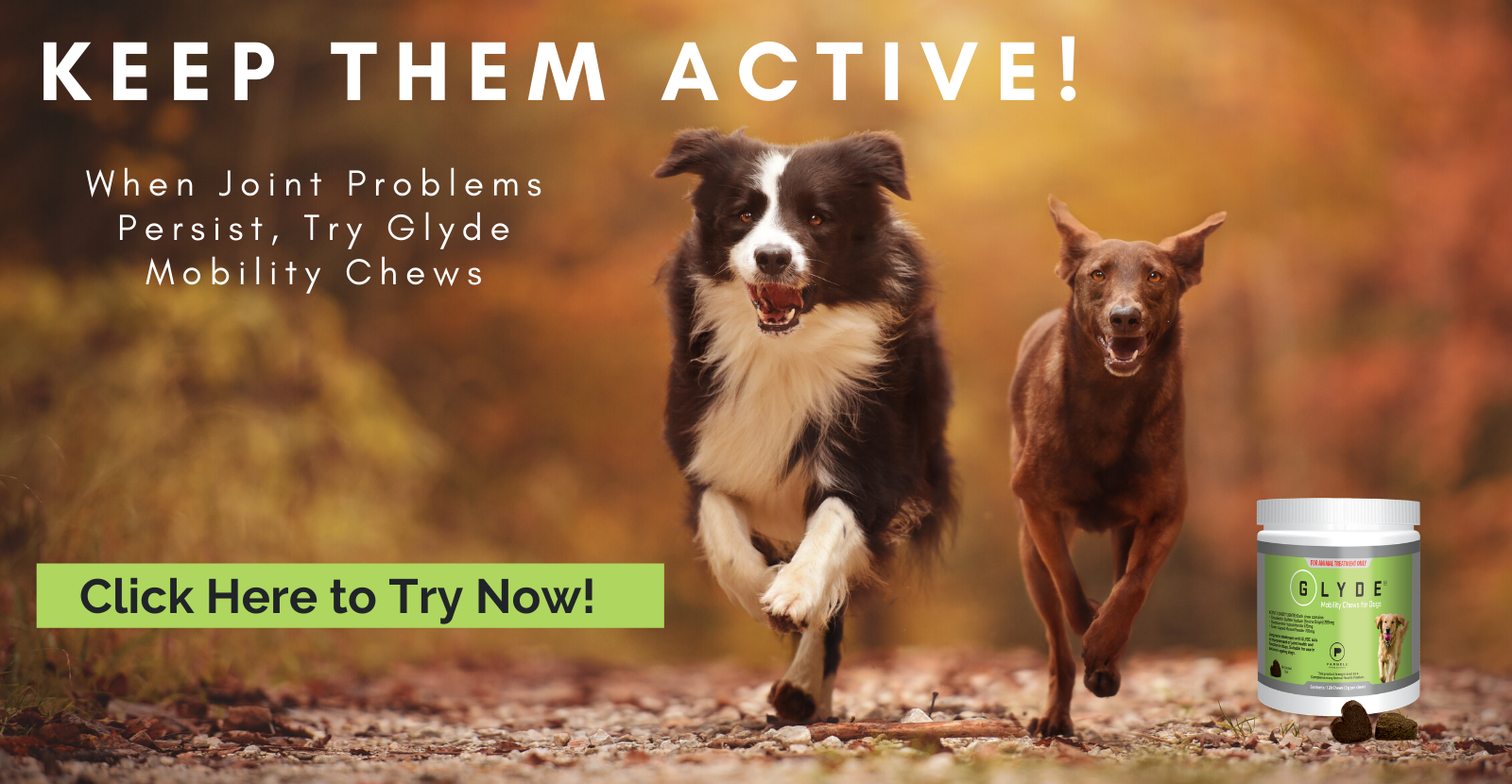One of the best things about working for an animal health company is when our customers write in to let us know how they are doing, with the help of Glyde® Mobility Chews. We recently heard from Ann, the dog mum of two Leonbergers. We have not heard from a pet parent with Leonbergers before, so we were excited to hear from them. Leonbergers are considered giant breed dogs. The Leos, as they are sometimes called, can get up to 76 cm and weigh 63 km for the female breed of the species. These are clearly big dogs that need all the help they can get with their mobility. Here is what Ann had to say about her #GlydeDogs!
This testimonial came at a great time, as we have just released an article with more detail about hip dysplasia in dogs. Be sure to find out more about hip dysplasia in dogs here.
Leonbergers originated from Germany and are considered working dogs. They are friendly, gentle, and playful dogs. Due to their size, they are known for having mobility issues as they age. Distant cousins of the Leonbergers include St. Bernards, Newfoundlands, and Pyrenean Mountain Dogs.

Large and giant breed dogs are a great fit to add Glyde Mobility Chews to their diet. Glyde is all-natural and has proven levels of three important joint health ingredients. Glyde is the only APVMA-registered nutraceutical that contains a proven level of three key components that work to relieve the painful signs of arthritis.
- New Zealand Green Lipped Mussel (GLM): A powerful anti-inflammatory
- Glucosamine: Reduces cartilage degradation
- Chondroitin Sulfate: Helps rebuild cartilage
Protecting a dog’s ability to run and play is key to preserving the quality of life. That’s why early recognition and treatment of osteoarthritis (OA) is so important. 20% of dogs over the age of 1, and 80% of dogs over the age of 8 will shows signs of OA. Learn more about osteoarthritis in dogs.













